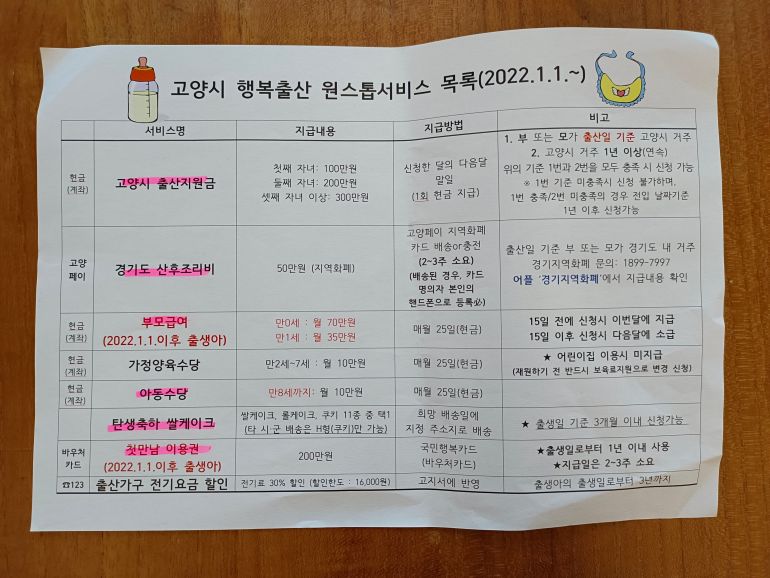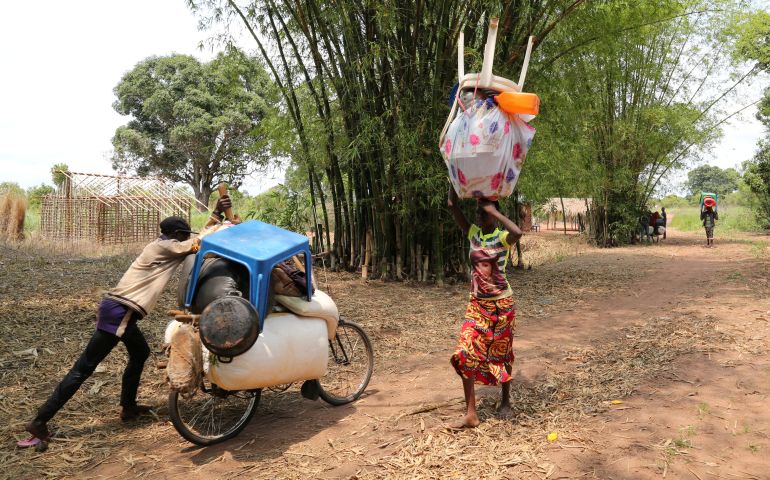South Korean parents are being showered with cash, but experts say money alone will not fix the country’s fertility woes.
Ilsan, South Korea – In their apartment on the outskirts of Seoul, Kwon Jang-ho and Cho Nam-hee sat down recently at the kitchen table to work out the monthly budget for their 17-month-old son, Ju-ha.
“Raising a baby in Korea can be affordable if you don’t buy unnecessary stuff and take advantage of government support,” Kwon, who works as a broadcaster with a local radio station, told Al Jazeera, while poring over the numbers.
“In our building, there’s even a local government-sponsored centre where you can borrow things like toys or strollers for free,” added Cho, who is on maternity leave and, like most South Korean women, does not share her husband’s family name.
“Who doesn’t find it useful?” Kwon said. “It’s good that the government provides some support for families who already know they want kids but there are other factors to consider when it comes to tackling the low birth-rate problem.”
With the world’s lowest birth rate, South Korea faces a looming demographic and economic disaster. In 2022, the average number of babies expected per South Korean woman dropped to 0.78, down from the previous record low of 0.81 the previous year.
The replacement rate in developed countries – the number of births needed to keep the population stable – is typically about 2.1.

To reverse the trend, South Korea’s central and local governments are scrambling to provide payments and other benefits to anyone who gives birth to a child.
South Korea, which rose from poverty to developed country status in the span of a generation, is not known for its strong social safety – its social spending is among the lowest in the OECD.
But even compared with European countries known for their well-developed social welfare systems, many of which have implemented their own “baby bonuses” in response to low birth rates, South Korea’s schemes are generous and come with few strings attached.
Since 2022, mothers have received cash payments of 2 million won ($1,510) upon the birth of a child, more than in famously socialistic France.
Families receive 700,000 won ($528) in cash per month for infants up to the age of one and 350,000 won ($264) per month for infants under two, with the payments set to rise to 1 million won ($755) and 500,000 won ($377), respectively, in 2024.
A further 200,000 won ($151) per month is provided for children up until elementary school age, with additional payments available for low-income households and single parents.
Other benefits include medical costs for pregnant women, infertility treatment, babysitting services and even dating expenses.
In a district in Busan, South Korea’s second-biggest city, a separate bonus for giving birth three or more times recently increased from 500,000 won ($377) to 10 million won ($7,552). And in the rural southwestern South Jeolla Province, monthly stipends of 600,000 won ($453) per child are provided for seven years – equivalent to 50.4 million won ($38,000).

But whether splashing the cash can in any way alleviate South Korea’s demographic woes is unclear.
Cho Joo-yeon, a 39-year-old Korean language interpreter in Seoul who has been married for 10 years, said having children has never been an option for her and that no amount of government support would change her mind.
“Having a child would be a huge responsibility because the basis would be how my parents raised me, which is a huge standard to live up to,” Cho told Al Jazeera. “I’ve never wanted to be a pregnant person. I’m not going to sacrifice my career for a child.”
Cho’s husband Nam Hyun-woo is a creative director in the advertising industry and the couple treasure their time together despite both leading busy professional lives.
“We like the financial leisure that we have, we don’t have to worry about sending children to expensive schools or thinking about extra savings. We can splurge on ourselves and have that extra luxury,” Cho said.
For many South Koreans, choosing not to marry or have children is simply a matter of preference.
In a survey carried out last year by the Office for Government Policy Coordination, 36.7 percent of 19–34-year-olds expressed no desire to have children.
In Seoul, which has the lowest birth rate among cities and provinces in the country, six out of 10 young adults responded the same way in a survey by the Seoul Foundation of Women & Family.
Among young South Korean women, just 4 percent view marriage and parenthood as essential, with more than half seeing neither as important in their lives, according to survey data from the Korean Association for Social Welfare Studies.
In 2022, there were just 192,000 marriages in South Korea, where births out of wedlock remain rare, an all-time low.
Experts have often pointed to the need to address a complex web of issues keeping families from having children, including a gruelling work culture, sky-high housing and education costs, and gender inequality.
In a survey carried out for the Joongang Ilbo newspaper earlier this year, 27.4 percent of respondents said they believed the burden of childcare costs is the primary reason for low birth rates. Other cited reasons included job insecurity, housing instability and other economic factors.
Some controversial remedies that have been floated by politicians include exempting men with three or more children from compulsory military service and allowing foreign domestic workers to work for less than minimum wage to alleviate the burden of housework.
South Korean President Yoon Suk-yeol recently declared that spending 280 trillion won ($211bn) on the problem over the last 16 years had been a failure and called for “bold and sure measures” to address the crisis.
Nonetheless, the government has doubled down on financial incentives.
Professor Song Da-yeong, a social welfare professor at Incheon National University, said cash allowances were not a long-term solution.
“Child-rearing is not a matter of providing financial support for the first two years of a child’s life,” Song told Al Jazeera. “It is not possible to provide high levels of parental benefits until a child is all grown up.”
Kwon Jang-ho and Cho Nam-hee, who live in Ilsan about 25km (15 miles) north of the South Korean capital, anticipate bigger challenges when their son begins elementary school.
“For people who live in big cities and have high aspirations, the competition increases to send our children to the best schools. You have no choice but to spend money on hagwons,” Cho said, referring to the after-school private academies that many parents enrol their children in from as young as five years old.
In 2022, South Koreans’ spending on private education hit a new record, with total annual spending reaching 26 trillion won ($19.6bn) and almost 80 percent of all students receiving some form of private education.
“There’s always that pressure to be ahead of everyone else,” Kwon said.
Song, the university professor, said the government needs to focus on creating an environment where parents can balance work and childcare, rather than financial support alone.
South Korea has some of the longest work hours among developed countries and is ranked in the Economist’s annual glass-ceiling index as the worst OECD country for women to pursue equal opportunities in the workplace.
“It needs to include policies such as using up all parental leave available, reduced work hours and flexible work arrangements,” Song said, emphasising the need for an environment where women are not “kicked out of the labour market” after giving birth.
Although South Korea’s traditionally patriarchal attitudes are gradually changing, women are often still expected – and in some cases feel obligated – to become full-time mothers after giving birth.
Cho Joo-yeon, the interpreter who plans to remain childless, believes the social structure and perceptions need to be transformed to address South Korea’s rock-bottom birth rate.
“It’s not just one person, one government, or one generation that has to change; it may even be several,” she said.





.jpg)
.jpg)



